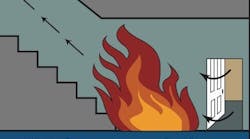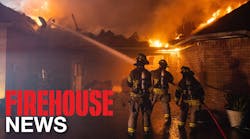In New York City, the Uniformed Firefighters Association (UFA) has amended its constitution to punish members who serve as volunteers in any combination department. Anyone who serves as a volunteer, part-time or part-paid firefighter could be declared “a member not in good standing,” and made ineligible for some group insurance and other union benefits. Similarly, several dozen Washington, D.C. firefighters have been placed on charges by union locals in neighboring Montgomery and Prince George’s counties in Maryland for serving as volunteers in local fire and rescue departments there.
In Connecticut, the City of Hartford has agreed to a provision in its collective bargaining agreement with the firefighters union that would ban Hartford firefighters from volunteering in other departments. The ban takes effect in June 2008. As a result, the Connecticut General Assembly considered legislation this year (H.B. 5519) that would bar cities from prohibiting their paid firefighters from volunteering in other departments. Although H.B. 5519 was not enacted this year, it provoked a stormy debate between the City of Hartford and suburban jurisdictions that would be most affected by the new restriction.
The lines of the political debate are clearly drawn. On the union side, IAFF General President Harold Schaitberger said in a letter to union affiliates, “The IAFF Constitution makes it clear that IAFF members can be subject to charges and internal discipline if they serve as volunteers.” Further, he warned, “Although an IAFF member may make a personal choice to join a volunteer fire department, that personal choice is one that can have serious consequences under our Constitution, including loss of IAFF membership.” That loss of union membership potentially could carry with it significant economic consequences, if membership were a prerequisite to employment or other economic benefits.
On the volunteer side, National Volunteer Fire Council Chairman Philip C. Stittleburg condemned the New York union’s action as an attack against the spirit of volunteerism. “We believe it to be the right of all citizens to volunteer freely, without prohibition or discrimination,” he said in a statement.
Stittleburg was joined in opposing the New York union policy by Larry Curl, chairman of the Volunteer and Combination Officers Section of the International Association of Fire Chiefs (IAFC). In an April 2004 letter, they call the union restriction an attack on basic First Amendment rights, characterizing it as, “an attack upon the spirit of volunteerism that our country was built upon.” A national IAFC survey found that a significant number of its members have been subjected to some form of inappropriate peer pressure, harassment or outright intimidation regarding their service as volunteers.
It appears that there has been no litigation directly addressing these restrictions. And, although there are laws regulating labor-management relations, the IAFF has not cited any provision that directly addresses attempts by unions to restrict the off-duty activities of their members.
The Fair Labor Standards Act (FLSA) regulates such matters as minimum wages and overtime. Its provisions make clear that no person covered by the act may volunteer for his or her employer. This law, which has been applied to state and local employees, clearly prevents a firefighter from being a volunteer in the same department where he or she is employed, but it says nothing about volunteering in another department. Other laws that regulate labor-management relations clearly prevent employer harassment or sanctions against employees who participate in union activities. Union organizing clearly is protected, but these laws are largely silent regarding the relationship between the union and its members or other employees.
It is reasonable that a private organization may set criteria for membership. The volunteer restriction is consistent with the IAFF goal of promoting the interests of paid, full-time firefighters and paramedics. And, of course, it is the role of government, and not private organizations, to watch out for the public interest. Determining whether a restriction is in the public interest is a highly political debate, as illustrated by the heated rhetoric that surrounded the Connecticut legislation.
Balanced against this, however, are at least two important legal and public policy concerns. First, there is a basic individual freedom to do whatever we please on our own time. Second, a restriction on volunteering could be expensive to jurisdictions with limited budgets. Further is the reality that the union’s action carries with it, to some extent at least, an implicit government sanction. In many departments, mandatory union membership is written into the collective bargaining agreement.
Undoubtedly, this controversy will end up in court. Groups such as the National Right to Work Campaign are eager to see the matter litigated. The outcome may depend on how the case is framed. Indeed, the result may vary from state to state. But, the courts may well determine whether union restrictions on outside volunteer activities are legal on the basis of whether any significant state action is required.
Steve Blackistone, a Firehouse® contributing editor, is an attorney and a member of the Bethesda-Chevy Chase Rescue Squad in Montgomery County, MD.




